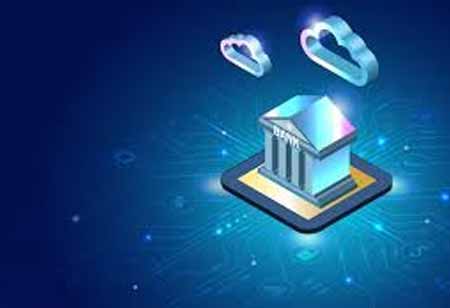THANK YOU FOR SUBSCRIBING

By
Banking CIO Outlook | Monday, January 27, 2025
Stay ahead of the industry with exclusive feature stories on the top companies, expert insights and the latest news delivered straight to your inbox. Subscribe today.
Wealth management is being transformed by digital technologies such as intelligent automation, blockchain, and cloud computing.
FREMONT, CA: Wealth management customers' needs are changing, but digital technology adoption has remained slow. New technologies are influencing the needs of a new generation of customers. A more volatile and uncertain environment created by the Covid-19 pandemic requires wealth managers to provide faster and more convenient services.
According to McKinsey, wealth management firms cannot overcome these challenges without digital transformation.
Three key digital technologies are transforming the wealth management industry that is listed below:
The Use of Intelligent Automation in Wealth Management:
Enhancing mergers and acquisitions (M&A) in wealth management: Asset and wealth management M&A deals are on the rise. During M&As, RPA (Robotic process automation) can greatly speed up the time-consuming process of migrating investor data. During the onboarding of new clients, the transfer of data to the new system can be automated, and if there is any discrepancy in the data, RPA can detect it and alert an employee to investigate further.
Keeping automation technology from pushing back: Automation technology can sometimes threaten employees' jobs, which results in pushback against adoption. To eliminate hesitation, wealth management firms should incorporate employees into the implementation process and provide them with adequate training.
Compliance in wealth management should be improved: In asset management compliance, predictive analytics and intelligent automation can save time and improve efficiency.
The Role of cloud computing in wealth management:
Reduction of costs: The SaaS (Software-as-a-Service) offerings of cloud applications allow wealth management firms to choose the most suitable SaaS (Software-as-a-Service) for their business needs. It can also help companies avoid heavy investments in data storage hardware by using cloud storage systems.
Improved compliance: The use of cloud accounting software can improve the tracking of documents for auditing processes in wealth management.
Flexibility: Depending on the size of the asset data and the number of clients being managed, cloud applications can provide more flexibility and scalability.
A higher level of security: With cloud-based storage platforms, wealth managers can safeguard their confidential financial data more effectively.
Blockchain and wealth management: Wealth management can benefit from blockchain technology in many ways, including improved transparency, security, and cost reduction.
Building client books: Smart contracts can monitor client books and inform clients and their advisors of alterations, such as asset allocation changes.
Data that is secure and unaltered: Firms that manage wealth can store copies of reference data on blockchain systems that cannot be altered. Additionally, companies can separate their internal and external blockchain systems to maintain confidentiality. Blockchain systems also reduce security threats since unauthorized users cannot access them.
THANK YOU FOR SUBSCRIBING
Be first to read the latest tech news, Industry Leader's Insights, and CIO interviews of medium and large enterprises exclusively from Banking CIO Outlook
I agree We use cookies on this website to enhance your user experience. By clicking any link on this page you are giving your consent for us to set cookies. More info



